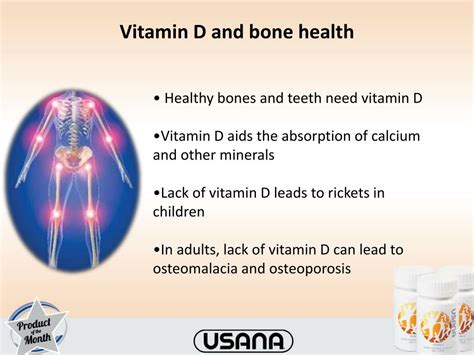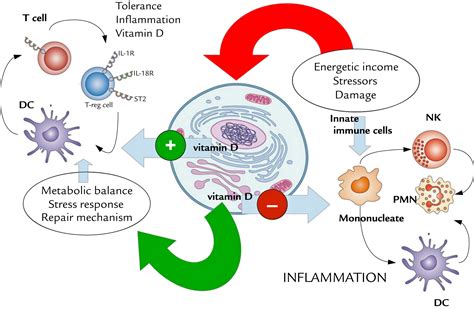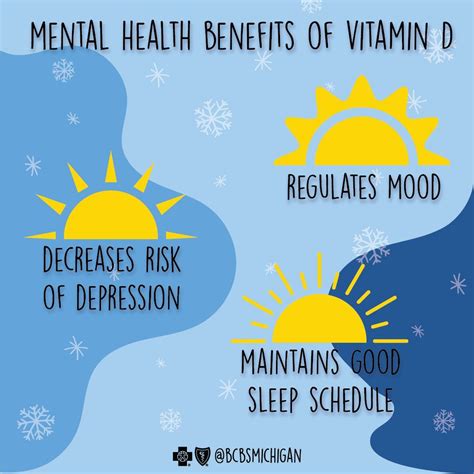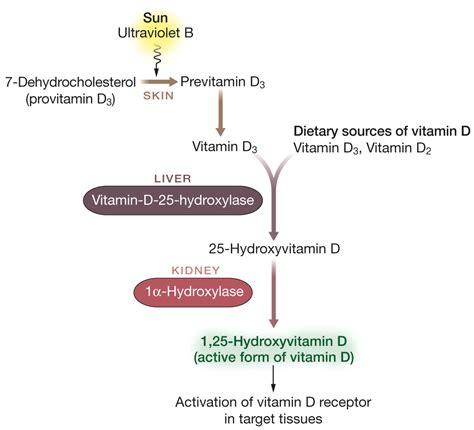Intro
Boost health with 5 ways vitamin D benefits, including immune system support, bone health, and mood enhancement, while preventing deficiencies and diseases like rickets and osteomalacia.
Vitamin D is often referred to as the "sunshine vitamin" because our skin produces it when exposed to sunlight. However, many people are deficient in this essential nutrient, which can have serious consequences for our health. Vitamin D plays a crucial role in maintaining strong bones, immune function, and even mental health. In this article, we will explore the importance of vitamin D and provide tips on how to increase your levels.
Vitamin D deficiency is a common problem that affects millions of people worldwide. It can be caused by a lack of sunlight, poor diet, or certain medical conditions. Some people are more susceptible to deficiency, including those with dark skin, older adults, and individuals with limited sun exposure. The consequences of vitamin D deficiency can be severe, ranging from osteoporosis and fractures to increased risk of infections and autoimmune diseases.
The benefits of vitamin D are numerous, and research has shown that it can have a significant impact on our overall health. From reducing the risk of chronic diseases to improving mental health, vitamin D is an essential nutrient that should not be overlooked. In the following sections, we will delve into the details of vitamin D and explore the various ways it can benefit our health.
Vitamin D and Bone Health

How Vitamin D Affects Bone Density
Vitamin D helps regulate bone density by controlling the activity of osteoclasts, which are cells that break down bone tissue. When vitamin D levels are low, osteoclasts can become overactive, leading to a loss of bone density. On the other hand, when vitamin D levels are adequate, osteoclasts are regulated, and bone density is maintained. This is especially important for older adults, as low bone density can increase the risk of fractures and osteoporosis.Vitamin D and Immune Function

How Vitamin D Affects Autoimmune Diseases
Vitamin D has been shown to have a protective effect against autoimmune diseases, such as multiple sclerosis, type 1 diabetes, and rheumatoid arthritis. Research suggests that vitamin D can help regulate the activity of immune cells, reducing the risk of autoimmune diseases. Additionally, vitamin D may help reduce inflammation, which is a common feature of autoimmune diseases.Vitamin D and Mental Health

How Vitamin D Affects Seasonal Affective Disorder
Vitamin D deficiency has been linked to seasonal affective disorder (SAD), a type of depression that occurs during the winter months when sunlight is scarce. Research suggests that vitamin D supplements may help alleviate symptoms of SAD, although more research is needed to confirm this.Vitamin D and Chronic Diseases

How Vitamin D Affects Cardiovascular Health
Vitamin D has been shown to have a protective effect against cardiovascular disease, with research suggesting that it can help lower blood pressure, improve lipid profiles, and reduce the risk of heart failure. Additionally, vitamin D may help reduce inflammation, which is a common feature of cardiovascular disease.Vitamin D and Cancer Prevention

How Vitamin D Affects Cell Growth
Vitamin D has been shown to have a regulatory effect on cell growth, with research suggesting that it can help prevent the growth of cancer cells. Additionally, vitamin D may help reduce the risk of cell damage, which can increase the risk of cancer.What are the symptoms of vitamin D deficiency?
+Vitamin D deficiency can cause a range of symptoms, including fatigue, weakness, and bone pain. In severe cases, it can lead to conditions such as rickets, osteomalacia, and osteoporosis.
How can I increase my vitamin D levels?
+Vitamin D levels can be increased through sun exposure, dietary changes, and supplements. Foods rich in vitamin D include fatty fish, egg yolks, and fortified dairy products. Supplements are also available, although it is essential to consult with a healthcare professional before taking any supplements.
What are the risks of vitamin D toxicity?
+Vitamin D toxicity can occur when levels become too high, leading to symptoms such as nausea, vomiting, and weakness. In severe cases, it can cause kidney damage and other complications. It is essential to consult with a healthcare professional before taking any supplements to ensure safe and effective use.
In conclusion, vitamin D is an essential nutrient that plays a critical role in maintaining strong bones, immune function, and mental health. With its numerous benefits and potential to reduce the risk of chronic diseases, it is essential to ensure adequate vitamin D levels. By understanding the importance of vitamin D and taking steps to increase levels, individuals can take control of their health and well-being. We invite readers to share their thoughts and experiences with vitamin D in the comments section below and to explore other articles on our website for more information on maintaining a healthy lifestyle.
